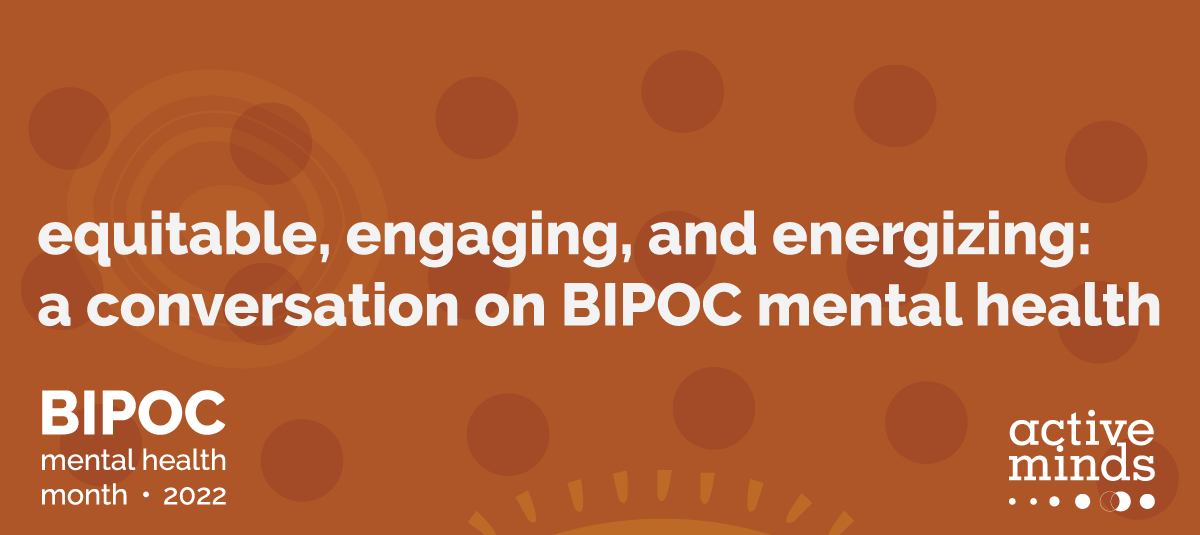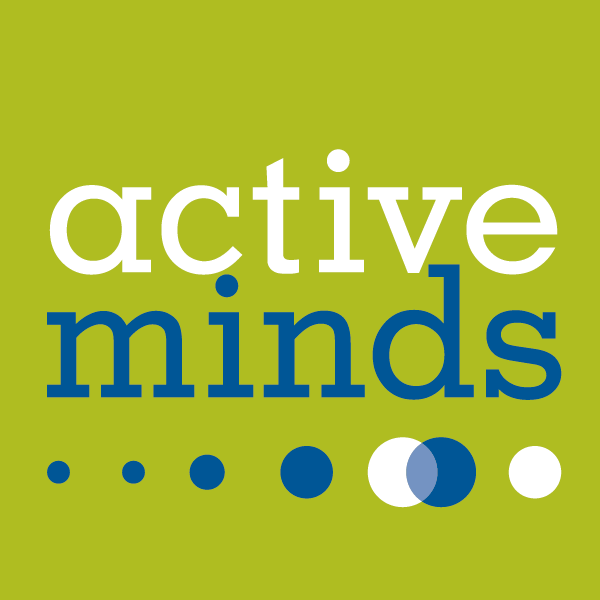As part of BIPOC (Black, Indigenous, and People of Color) Mental Health Month, Active Minds’ manager of next-gen initiatives Alicia Elms sat down with three young adult mental health advocates to discuss fostering equitable advocacy within mental health, the importance of normalizing conversations about well-being, and where they plan to go in the future as they continue to work in mental health. View the full recorded event here, and continue reading to learn more about what each participant shared during their time on the panel:
Brandon Bond is a second-year master’s candidate at the University of Michigan completing a Master’s of Public Health in health behavior and health education and a Master’s of Social Work in global social work practice. As a member of the 2022 Emerging Scholars Fellowship cohort, he explored men’s mental health, particularly how barbershops, a staple of the Black community, can create a safe and welcoming space for those who might not otherwise feel comfortable discussing their mental health. For Brandon, the focus comes from shifting the availability of relevant mental health resources, particularly for college students. He recalled the familiar phrase “Hurt people hurt people,” and discussed his effort to change it to “Healed people heal people.” Providing intentional spaces and programs for everyone, particularly BIPOC men, on college campuses will give young adults the chance to address and take care of their mental health and in turn, be part of the solution to improving mental health for everyone.
Saharra Dixon is a first-year doctoral student in the community health education program at the University of Massachusetts Amherst. Like Brandon, she was a member of the 2022 Emerging Scholars Fellowship cohort who used digital storytelling as a critical narrative intervention to explore the experiences of Black women with body-focused repetitive behaviors like hair-pulling and skin picking and the impact this can have on their mental health. She expanded on the importance of those involved in mental health advocacy, particularly from the BIPOC community, taking care of themselves first, saying, “What I’m seeing now are a lot of folks, especially folks who are either interested or committed to doing the social justice and advocacy work, and making real change really wanting to be well so that they can continue to the good fight.” Sahara’s message is an important one, reminding us to prioritize taking care of each other and ourselves if we are to continue the important work of creating and maintaining an equitable and inclusive mental health movement.
Sophia Shieh is a recent graduate of Boston College who is now continuing to pursue her education at Oxford University before joining Columbia University to begin her master’s program in the fall. A recipient of the inaugural Emerging Scholars Nash Family Scholarship, she plans to eventually pursue a Ph.D. in clinical or community psychology to continue learning from and amplifying the voices of those whom she serves through a community participatory framework. In her current clinical work and experiences, Sophia, like Saharra, emphasized the importance of social justice and advocacy in mental health. “There’s more emphasis on how social justice is inseparable from mental health,” said Sophia of how the framing of mental health is changing as we continue to explore the disparities present between various groups and identities.
The conversation was robust and energizing and shared numerous opportunities to reflect on our understanding of mental health for BIPOC individuals. Saharra shared a thought that should stay with us not only during BIPOC Mental Health Month but far beyond: “Therapy is only as helpful as it can be, as long as we address the root causes…”. Individuals’ mental health should remain a priority, but also must continue to focus on community care, addressing the disparities found in oppressed communities regarding stigma and access to treatment, and supporting the next generation of mental health leaders who are living this work.
Learn more about the Emerging Scholar Fellowship program, supported by the Scattergood Foundation for Behavioral Health and Avi and Sandra Nash, here, and about the Emerging Scholars Nash Family Scholarship, made possible by generous support from Avi and Sandra Nash, here.




